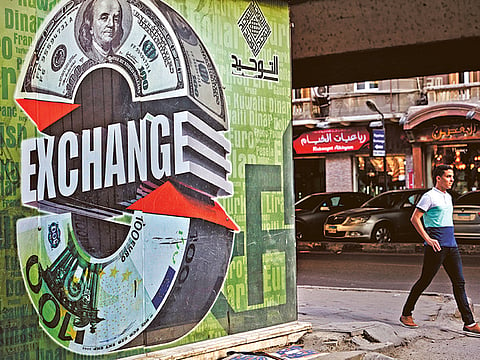Currency devaluation might not boost Egypt’s tourism
Analysts says security remains travellers’ top concern as Egypt is already cheap

Abu Dhabi: For Egypt’s stock market, mere hints about potential currency devaluation and central bank stimuli were more than enough to push shares strongly in the green. For the country’s tourism sector, however, currency is the least of its worries.
While Tareq Amer, governor of Egypt’s Central Bank, recently said the Bank would focus on reviving the economy rather than stabilising the exchange rate, analysts said another round of currency devaluation would do little to revive tourism specifically.
Tourism has historically been one of the largest contributors to Egypt’s gross domestic product.
“Egypt is already considered a significantly cheaper tourism destination regionally. However, without a marked improvement in the confidence of tourists and tour operators in terms of safety and security on the ground, devaluation is unlikely to attract more tourists.
Safety will be more paramount to tourists than a reduction in travel costs,” said Rashid Aboobacker, associate director at TRI Consulting, a hospitality consultancy.
On Tuesday, the Central Bank kept the currency rate stable at 8.78 pounds to the US dollar.
The move contradicted what traders and analysts had been betting on for two weeks prior to that, after the Bank’s governor hinted that a round of devaluation may be on the way. Amer had said in an interview that focusing on defending the currency over the past five years was a “grave mistake.”
Analysts still do expect to see some devaluation over the coming months, though that won’t mean much to tourists after multiple security concerns and attacks in Egypt. The latest attack was the crash of an EgyptAir flight in May en route from Paris to Cairo, killing all 66 people on board.
“The biggest challenge facing Egypt is the recent safety commotions associated with tourism and geopolitical tension in the region which has led tourists to become less confident to flying to touristic areas in Egypt,” said Fatemah Sherif, senior analyst at Euromonitor International, a research firm.
She added that international tourists are now instead opting to travel to other Mediterranean locations such as Spain and Portugal over Egypt, Turkey, and Tunisia.
Compound annual growth rate
In May 2016, the number of tourists visiting Egypt plunged nearly 52 per cent compared to that in May 2015, primarily due to a 61 per cent decline in the number of Russian guests. Russia (along with Italy and the UK) has long been one of Egypt’s largest source markets for guests.
Despite the challenges, all is not bleak for Egypt’s tourism sector.
Sherif said she expected the sector to pick up over the next five years, with a forecast compound annual growth rate of 3.5 per cent from 2016 till 2020.
“Tourism industry in Egypt has historically been highly resilient and has always bounced back once the situations improved and threats mitigated. Although the repeated terrorist attacks have raised questions on safety and security, we expect the industry to bounce back once the international community perceives a marked reduction in terrorist threats in the country,” TRI’s Aboobacker said.
Meanwhile, Micky Bhatia, general manager at Al Futtaim Travel, pointed out that some of the most recent terrorist attacks in Egypt were concentrated in aircraft and airlines rather than in the destination itself. He said that GCC travellers who made plans to visit Egypt this summer have mostly not changed their plans, but rather opted to fly on other airlines that they perceive as safer.
Sign up for the Daily Briefing
Get the latest news and updates straight to your inbox



